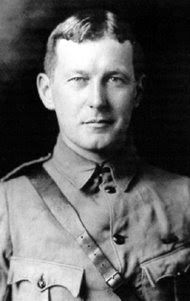TV Nov. 10: Debating Afstan/Interviewing the RoCK
...Meanwhile, at Mr Wells' blog:
On Nov. 10, Maclean’s will present a round table discussion on “Afghanistan: Noble Fight or Lost Cause?” at the Neptune Theatre in Halifax, the second in a series of talks. The debate, broadcast live nationwide on CPAC, will feature Scott Taylor, a former soldier and the publisher and editor of Esprit de Corps, and Mercedes Stephenson, military analyst and vice-president of Breakout Educational Network [more here, and on both Mr Taylor and Ms Stephenson here], among others. The event will be moderated by CPAC’s Peter Van Dusen, and include Maclean’s columnists Paul Wells and Andrew Coyne as panellists. Click here for tickets.This week, Wells and Coyne kick off the discussion.
Paul Wells: Andrew, last week I spent a day with soldiers of the 2nd Canadian Mechanized Brigade Group at Petawawa while they trained for deployment to Afghanistan next spring [how many of our pundits bother to do things like that?]. I was impressed as always by the seriousness and professionalism of our troops. I saw weapons and equipment that were far superior to the army-surplus clichés that are too easily peddled about the Canadian Forces. But I’m haunted by a remark from one young woman who was asked whether she’s looking forward to going to Afghanistan. “Of course,” she said. “I mean, this is why we signed up, right? To go someplace and make a difference.”That’s what you want to hear from a soldier: resolute eagerness to go where the job will take her. But I felt my conscience tug anyway—because I’m less and less sure that woman and her colleagues from 2 CMBG will be making a difference when they get to Kandahar.
Until the end of 2008, the deadliest months in the entire Afghanistan war for the International Security Assistance Force (NATO and allied Western forces) had been June and August of that year, when 46 soldiers had been killed. As I write this, October is the fourth month in a row in 2009 with a higher death toll. The casualty rate has grown for six years running, but the human cost is still sustainable—as long as it leads to a safer Afghanistan, to a South Asia that isn’t a hive of Islamist extremism, and to more secure Canadian and Western homelands. That’s the rub. After enthusiastically supporting Canada’s Afghan deployment since 2001, I see less and less evidence that any of those strategic objectives is brought closer by the work Canadians do in Afghanistan. So one question we’ll debate in Halifax is whether Canada’s troops should stay in Afghanistan past 2011. But lately I wonder whether they should even stay that long.
Andrew Coyne: Paul, you have every reason to be skeptical. The war is not going well. The Taliban are proving more resilient, the loyalties of tribal leaders more mercurial, the Karzai regime more corrupt than expected. At this point, the prospects of victory—a stable, legitimate government in Afghanistan that can defend itself from the Taliban—seem remote. But, well, war is hell. If we only fought wars we were sure of winning, we should never have fought any wars at all.
Whether to fight on is rather dependent on three interrelated variables: the importance of the cause, the rate of casualties, and the likelihood of victory. The greater the cause, or the better the chances of victory, the higher the casualty rate the public will be willing to endure.
I take it we are agreed that the West’s aims in Afghanistan (Canada had reasons of its own for fighting, as it would for leaving, but for now let’s talk in broader terms) remain as pressing as ever—perhaps more so, with the deteriorating situation in its neighbour, Pakistan. While progress toward those goals has been unsteady, it has not been nil. Canadians, judging by our Maclean’s/Nanos poll (full details will be discussed at the Nov. 10 event), seem to believe we’ve made a difference, notably in humanitarian terms: nearly two-thirds scored Canada’s efforts at greater than five out of 10. The recent presidential election was a fraud—but next month’s runoff gives reason to hope for a more democratic future [oops!].
It’s common to ask what victory “looks like.” I’d like to know what defeat looks like. What are unacceptable losses? Where is the line that separates grim realism from defeatism? Since 2002, 109 Canadians have been killed in action in Afghanistan, a little more than one a month. Every death is a tragedy, but by the standards of all previous conflicts, these are relatively minor losses. In Canada, during the same period, 47 police officers and 125 firefighters were killed in the line of duty. The inevitability of casualties in these professions is not generally taken as a signal that we should give up the fight against crime, or fire. Neither is the exceeding improbability of victory...
...Over on CPAC, last week I interviewed Ben Rowswell, the current Representative of Canada in Kandahar [more from Mr Roswell here], in preparation for the big Coyne-Wells extravaganza in Halifax next week. This interview amounts to my debut as a teevee host, rather than just a guest. You can survey the wreckage over here [the video].






1 Comments:
Stephenson and Taylor on the same panel? That will be interesting.
Post a Comment
<< Home